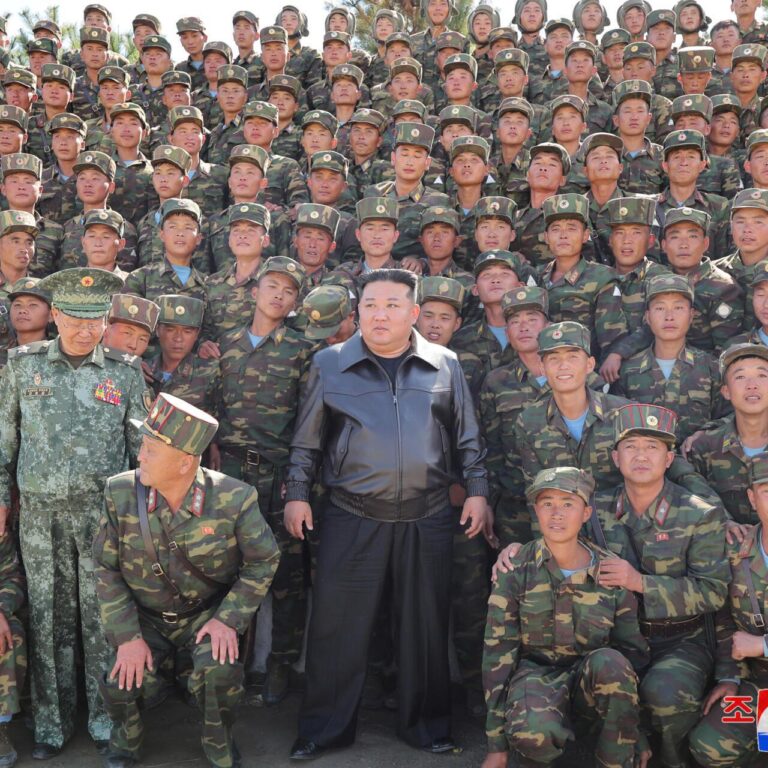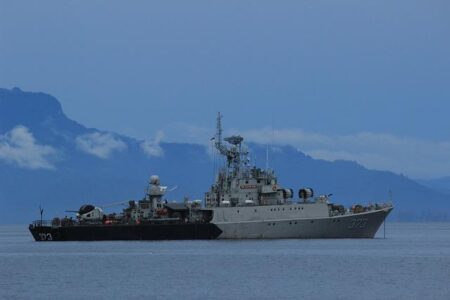South Korean officials have claimed that approximately 2,000 North Korean soldiers have been killed while fighting alongside Russian forces, according to a report by The Moscow Times. This development marks a significant escalation in the secretive military cooperation between Pyongyang and Moscow amid the ongoing conflict in Ukraine. Seoul’s assertion sheds new light on the extent of North Korea’s involvement in the war, raising questions about the implications for regional security and international relations.
Casualty Report Raises Questions Over North Korea’s Military Involvement in Ukraine
Recent intelligence reports from Seoul allege that approximately 2,000 North Korean soldiers have died while fighting alongside Russian forces in Ukraine. This staggering number has intensified scrutiny over Pyongyang’s covert military support to Moscow, a connection long suspected but seldom confirmed. South Korean officials state that these casualties stem from frontline engagements in the eastern regions of Ukraine, where Russian-led offensives have encountered fierce resistance from Ukrainian troops. Observers suggest that the involvement of North Korean personnel may signal a broader strategic alliance between the two nations, leveraging human resources to sustain Russia’s war efforts amid international sanctions and manpower shortages.
Despite official denials from North Korea, an analysis of battlefield data reveals patterns indicative of foreign troops’ presence. The breakdown of reported casualties is reflected in the following simplified overview:
| Category | Estimate |
|---|---|
| North Korean Soldiers Deployed | ~4,500 |
| Estimated Fatalities | ~2,000 |
| Injured | ~1,200 |
| Units Involved | 3 Infantry Brigades |
Analysts also list key questions emerging from this development:
- What impact does North Korea’s involvement have on international diplomatic efforts?
- How might this affect the sanctions regime targeting Pyongyang and Moscow?
- Could this signal a shift in North Korea’s military doctrine toward greater external engagement?
Implications for Russia-North Korea Relations Amid Ongoing Conflict
Russia’s reliance on North Korean manpower in active combat zones marks a significant evolution in the two countries’ strategic partnership, highlighting Pyongyang’s growing willingness to extend its military influence beyond its borders. The reported casualties underscore a deepening entanglement that could recalibrate diplomatic engagements in the region. Such involvement, while covert, risks further international scrutiny of both nations, potentially amplifying sanctions and geopolitical isolation, especially as Seoul and its allies push for transparent accountability.
Key factors shaping this dynamic include:
- Military Cooperation: North Korea’s deployment signals a shift from mere political alliance to active battlefield collaboration, suggesting a deeper operational synergy with Moscow.
- Regional Security Impact: The sacrifice of North Korean soldiers on Russian fronts could escalate tensions on the Korean Peninsula, complicating inter-Korean dialogues and regional stability.
- Geopolitical Messaging: Moscow leverages North Korean troops to project resilience, while Pyongyang demonstrates its strategic relevance amid international sanctions.
| Aspect | Potential Outcome |
|---|---|
| Military Aid | Expanded arms exchanges and training programs |
| Diplomatic Relations | Closer political alignment but higher global sanctions |
| Internal Propaganda | Use of conflict narratives to bolster domestic support |
| International Response | Heightened monitoring by UN and allied nations |
Policy Recommendations for Strengthening Regional Security and Diplomatic Dialogue
In light of recent developments, it is crucial for regional stakeholders to enhance communication channels and pursue transparent diplomatic engagements. Establishing multilateral dialogue platforms that include North Korea, South Korea, Russia, China, and the United States can reduce misunderstandings and foster mutual trust. Confidence-building measures such as joint military de-escalation agreements and information-sharing initiatives should be prioritized to mitigate the risk of further escalations linked to proxy involvements in foreign conflicts.
Additionally, leveraging economic and humanitarian incentives can encourage compliance with peaceful norms. A coordinated regional security framework backed by clear enforcement mechanisms would discourage unilateral military actions and promote stability. Below is a summary of key recommendations aimed at consolidating peace efforts:
- Initiate regular summit meetings among the involved nations
- Develop transparent channels for conflict-related intelligence exchange
- Establish joint verification teams for monitoring troop movements
- Expand humanitarian aid linked to conflict de-escalation commitments
| Recommendation | Expected Outcome | Lead Actors |
|---|---|---|
| Multilateral Summit Forums | Enhanced Diplomatic Communication | All Regional States |
| Conflict Intelligence Sharing | Improved Transparency | Security Agencies |
| Verification & Monitoring Teams | Reduced Military Tensions | Joint Military Group |
| Humanitarian Aid Programs | Support for Peace Initiatives | International Organizations |
Wrapping Up
As the conflict continues to evolve, the reported involvement and casualties of North Korean soldiers underscore the complex web of international actors engaged in the fighting. Seoul’s claims add a new dimension to the ongoing hostilities, raising questions about regional security and the broader geopolitical implications. Further verification and analysis will be essential in understanding the full impact of these developments on the conflict and its participants.




